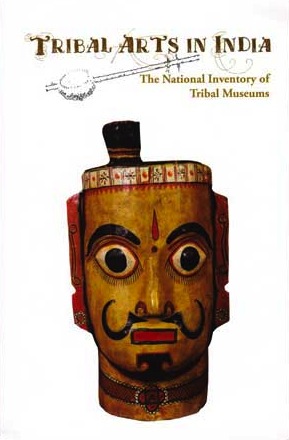, The Hindu, November 24, 2012 | To read the full article and view more photos, click here >>
The Garo tribe of Western Meghalaya celebrates the winter harvest with a three-day festival. […]
Alva Sangma, the editor of Achik Songbad, a Garo weekly, offered this reporter a lift from Tura. Alva, a former rally driver, drifts past the hairpin bends through the hills with terrifying ease. Rod Stewart keeps her company from the stereo. “Garos are confident drivers and musicians. We know how to celebrate and Wangala is the next big festival after Christmas,” she says. “We Garos are tuned into world music and culture. But outsiders do not know how attached we are to our culture. We may not continue to live in traditional wooden houses, but we know our dances and our culture. Wangala is party time. We dress up in our finest dokhmandas — they are expensive (Rs.2,500 to 3,000) — and show off.”
During the festival, the Garo — indigenous residents of the sub-tropical hills in Meghalaya, Assam, Tripura and Bangladesh — offer produce from the first harvest to Misi Saljong, the giver or the Sun God, in a ritual called Rugala. Nokmas or village chieftains lead troupes of male drummers and female dancers in a parade, accompanied by buffalo-horn trumpets and flutes. […]
Salgira R. Marak, director of printing and stationery in the capital, Shillong, is the choreography co-ordinator for the Wangala. “I am unwell, still I could not miss this for the world,” he says. “This is a homecoming for me. It’s also a natural responsibility that comes to us. No one asks anyone to help. Our society is different. I love this dance and I am here to help youngsters perfect their performance.”
With the advent of Christianity, Wangala celebrations were confined to a smattering of Songsarek (unconverted) hamlets in the hills. Garos call themselves A’chik Mande or “people of the hills”. L.K. Marak, one of the founders of the Hundred Drums Wangala, says, “There arose a need to preserve our culture. Christianity turned us away from head-hunting and education taught us to live alongside the rest of humanity. But we began losing our identity gradually. Our culture is rooted in these hills. The rituals are all inspired by nature. We felt that an annual festival would keep our younger generation aware of who we are and where we are from.” […]
Requesting anonymity, an officer told this paper, “We’ve lived here for generations and we speak Garo as well as any Garo. They don’t trouble us but we are made to feel like outsiders. I have attended this festival since I was young. Earlier I wanted to participate, but there aren’t too many migrants like me in the cultural troupes. Now I just enjoy watching.” […]
The Wangala is also an occasion for the government to stage plays and music performances to spread awareness on health, crime and other issues. […]
L.K. Marak, one of the few survivors of the original team, is happy that Garo youth find the Wangala a place to congregate. “Eating, drinking and dancing continuously for days; we don’t do that any more in the modern world. At least here the young can do that for three days. If the coming generations continue to enjoy like this, then we have succeeded.”
Source: The Hundred Drums Wangala – The Hindu
Address : https://www.thehindu.com/features/magazine/the-hundred-drums-wangala/article4129979.ece
Date Visited: 15 July 2020
Video coverage about the “100 drums Wangala festival 2013” on frontiertvindia
The Garos are indigenous people in Meghalaya, India and neighboring areas of Bangladesh like Mymensingh, Netrokona and Sylhet, who call themselves A·chik Mande (literally “hill people,” from a·chik “hill” + mande “people”) or simply A·chik or Mande.[1] […]
The Garos are one of the few remaining matrilineal societies in the world.
Religion
Garos are mainly Christians,[2] although there are some rural pockets where the traditional animist religion and traditions are still followed. […]
The Garo tribal religion is popularly known as Songsarek.The Garo people refer to their traditions as “Dakbewal” relating to their most prominent cultural activities.
Language
The Garo language belongs to the Bodo–Garo branch of the Tibeto-Burman language family. As the Garo language is not traditionally written down, customs, traditions, and beliefs are handed down orally. It is also believed that the written language was lost in its transit to the present Garo Hills. […]
Music and dance
Group songs may include Ku·dare sala, Hoa ring·a, Injoka, Kore doka, Ajea, Doroa, Nanggorere goserong, Dim dim chong dading chong, Serejing, Boel sala etc. Dance forms are Ajema Roa, Mi Su·a, Chambil Moa, Do·kru Sua, Chame mikkang nia, Kambe Toa, Gaewang Roa, Napsepgrika and many others.
Source: Garo people – Wikipedia, the free encyclopedia
Address : https://en.m.wikipedia.org/wiki/Garo_people
Date Visited: Tue Feb 03 2015 12:43:23 GMT+0100 (CET)
Tips
- Search a combination of keywords like “Meghalaya festival”, Garo music” or “Garo women” in the search window here: Google custom search – Indian press coverage of tribal culture and education >>
- Search for “video wangala” or similar word combinations on the Safe Search website >>

Read or download titles for free (eBooks & Magazine) >>
Related posts